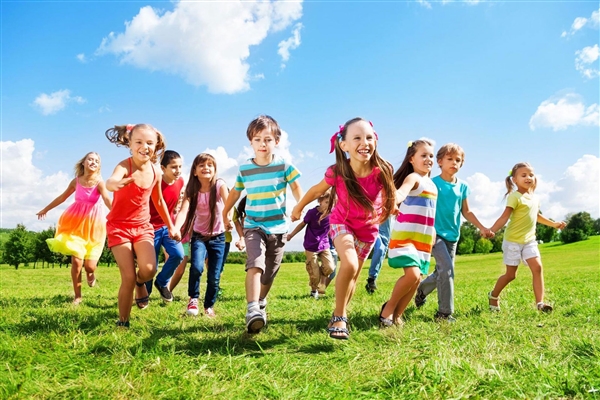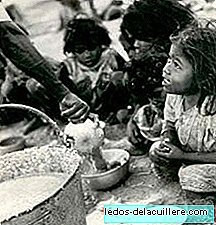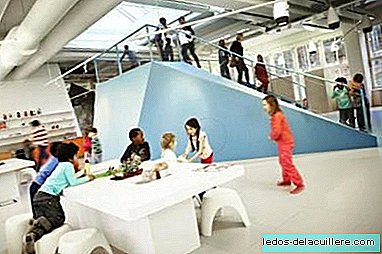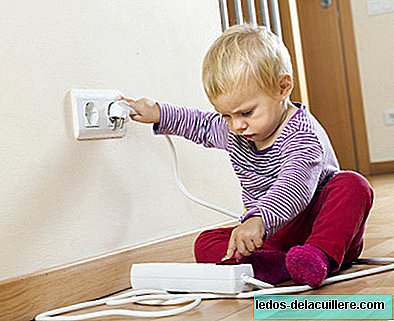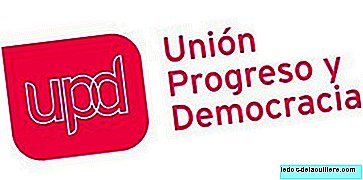
After having reviewed the political proposals related to our theme presented by PP, PSOE and IU-Los Verdes, it is the turn of UPyD electoral proposals for families for the 20N general elections.
As I indicated in the previous post, the electoral programs are not usually structured in all the sections that we present below, but you have to look between the different points of the program to extract what interests us and thus offer you a compilation of what We are interested in families.
On this occasion, UPyD electoral proposals for families We have divided them into the following three sections: Education, Work and Family Reconciliation, and finally, Equality and families.
Education
Boosting the European Dimension of Education closely connected with training in values, attitudes and competences linked to European citizenship. Increase in investment in education and research to reach the average of the most advanced European countries, guaranteed by a Teaching Financing Law. Educational reform aimed at combating the high rates of school failure and dropout and to improve the training levels of Spanish children and youth. The master lines of the model we advocate are:
Voluntary children's education and compulsory primary and secondary education up to 16 years. Continuous and preferential attention to primary education, the basis of the education system, which should be reviewed in depth and rigor. More realistic curriculum, with a reduction in the number of subjects and a learning planning based on the student's global work and not just the teaching hours. Promotion of the culture of effort. Establishment of clear criteria for course promotion. Promotion of diversification and reinforcement, with specific support programs, as alternatives to the repetition of the course. Continuous evaluation of the system through external tests based on clearly detailed content and minimum competencies. Priority of instructional objectives. Curriculum project set by the educational authorities, except in centers with special characteristics.
Recognition of the student as the subject of the right to education, whose integral training as an autonomous citizen must be the ultimate objective of the education system. Curriculum that instills democratic virtues, is respectful of all belief systems compatible with democracy and excludes ideological, identity or religious indoctrination. Development and improvement of the network of public centers so that the provision of public service ceases to depend on concerts with private entities. Rigorous administrative control of the admission criteria and the disciplinary regime of the centers supported with public funds, which must be the same in the public and the concerted ones, and real gratuity in all of them. Schooling of children and young people living in marginalized areas or from families in situations of social exclusion in centers with normal academic level and with necessary reinforcements, avoiding their concentration in ghetto centers. Attribution of public authority to those responsible for the centers and teachers to ensure a work environment and respect, and eradicate bullying, providing special protection to minors who, due to their ethnicity, mother tongue, sexual orientation or any other condition, are more exposed to suffer it. Promote more rational schedules, similar to those of the rest of Europe, that facilitate the reconciliation of family and work life. Encourage in companies the establishment of teleworking systems. Promote equal opportunities in the world of sports with measures that allow greater participation of women, improving the reconciliation of sports and family life. Encourage co-responsibility in the tasks of family care for women and men through the development of social services, especially nursery schools and care for dependency, and in business hours and services that facilitate conciliation. Encourage the extension of parental leave tending to equate maternity and paternity leave to promote equal employment opportunities for men and women, and the right of both parents to participate equally in raising children. National Law of Shared Custody of minor children by both parents, preferential option in separations and divorces so that exclusive custody is exceptional, harmonizing the legal regulation of the same throughout Spain to ensure equal rights of all citizens. The Shared Custody Law will develop: The principle of the best interests of the child to continue his daily life and his education with both parents and their respective families. The provisions of the European Charter of the Rights of the Child according to which every child has the right to enjoy their parents, who have joint responsibility for their development and education, and in case of de facto separation, legal, divorce or annulment, have the right to maintain direct and permanent contact with both, and the United Nations Convention on the Rights of the Child, which obliges States to respect the child's right to maintain personal relationships and direct contact with both parents on a regular basis, except for the best interests of the minor. The shared responsibility of both parents or coparentality, with the search for agreements for the benefit of the child and opting for mediation in the face of conflict to dejudicialize the processes of separation and divorce as much as possible. Support for the development of policies favorable to equal treatment of homosexual persons. In the petition for the adoption of minors by homosexual couples, promotion of norms that guarantee impartiality, always giving priority to the interest of the minor. Equality in comprehensive assistance to people with gender identity disorders (transsexuality) in public health throughout Spain. Promotion of habitual physical activity for its important role in the health of all social groups, with special effort in: a) campaigns to promote the physical activity of the Elderly; b) access of disabled people to sport; c) more efficient programs against childhood obesity (…). Effective guarantee of the protection of personal data on the Internet, reinforcing efforts to combat technological crimes, especially in terms of protection of children and youth. Surely each of us would have much to add to any electoral program, and in any of its sections. There are other political proposals for these 20N elections, and we invite you to leave us in the comments the family measures that you liked, although we will try to review them before Sunday. For now, we leave you with these UPyD electoral proposals for families for the 20N elections that undoubtedly, like the previous ones, invite reflection.Review of the educational curriculum for the stage 0-3 years that guarantees the unit of criterion and integral consideration of the evolutionary and psychological stage of 0-6 years. Inclusion of students with a specific need for educational support in the same centers and groups, preferably as the rest of the students, prioritizing early detection and intervention. Provision to the centers of the necessary professional supports. Educational commitment to equality between men and women. Co-education in centers supported by public funds. Curriculum that favors the equality of women and the use of a language contrary to discrimination.
Work and family conciliation
Equality and Families
To improve the system of Family Welfare of Minors, harmonizing the rules of the Autonomous Communities in the matter in the best interest of the child, with a single system of information on foster care / adoptions for the entire national territory, in order to avoid the loss of the link family among siblings in foster care or adoption processes in different Autonomous Communities. Strategic Plan of attention to people with Autism Spectrum Disorder and their families, and National Plan of Attention to Neurodegenerative Diseases (Alzheimer's, Parkinson's, multiple sclerosis, ALS, etc.) that addresses the necessary intervention in the health, social and health areas. investigation.
Video: 20-N, general elections (May 2024).



